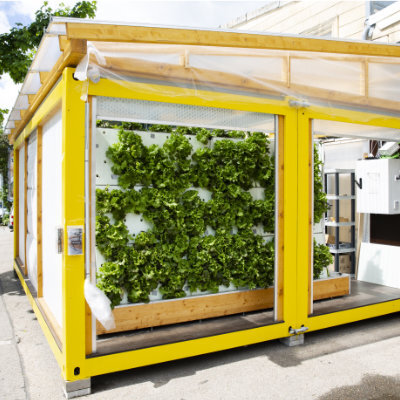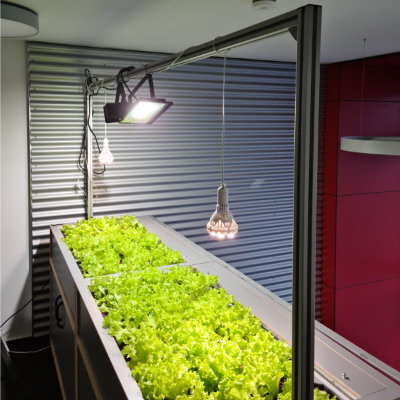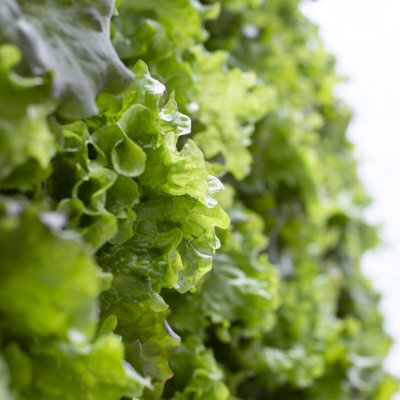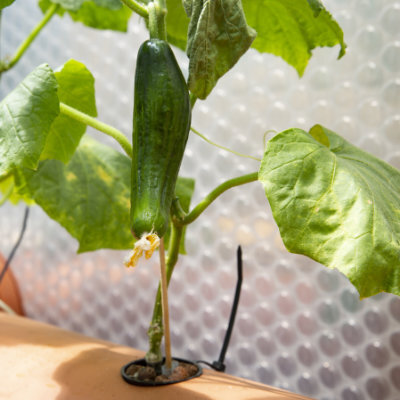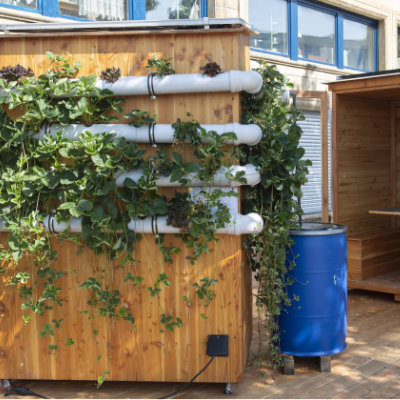Currently, most people live in cities and the numbers are projected to grow even further in the future. This will, naturally, increase the demand on food production and supply chains; therefore, instead of increasing an unsustainable set of practices, new forms of food production based on integration and diversification should be now the focus, according to the German Advisory Council on Global Change, the WBGU.
With food grown within cities, there is no need for long-distance food distribution. This lowers the impact of large supply chains and since hydroponics is a form of soilless agriculture running on a closed water system, it consumes between 10 to 30 times less water than field-grown agriculture, according to recent research.
In addition, there is potential to reduce energy-intensive fertilizers if rural and urban food production systems are combined with the production of organic compost as a base for rich soils and liquid fertilizers. Hydroponics makes it possible for the fertilizers not absorbed by the roots to remain within a closed system, unlike traditional methods: where the left-over fertilizers would enter the ground soil, and therefore, negatively affecting a bigger ecosystem of our planet. It has also been proven, that green surfaces can cool down the average temperature within high-condensed cities in general, with greens acting as insulation, according to 2012 published research on the Energy Procedia Journal. This is why Hydroponics can be used for greening facades and rooftops!
Combine all of these reasons mentioned above with the beautiful aesthetics possible with the green leaves of the vegetables and these are just the beginning of what gets us excited about the future with Hydroponics!
We strongly believe in the investment of Hydroponics. It provides a wholistic approach, combining nutrition, aesthetics, sustainable concepts, a community-building approach for all ages, and even a relaxed atmosphere, where concentration to work and learn is even promoted.
At [p3], we encourage you to take your time, learn the science behind Hydroponics, do your research and then take the next step with us, and ask yourself, where would you like to see a Hydroponic system around you, at your home, office or favorite Cafe.
![[p3] Schreinerei, Ausbildungsvorbereitung & Mobile Küche](http://images.squarespace-cdn.com/content/v1/5b4da568f8370ac3a573a1c3/1615278839104-ZNAI0VTM808VCCJZ1RL1/P3_CLAIM_schwarz_logowebsite21_300.png)

